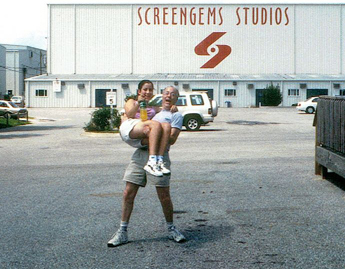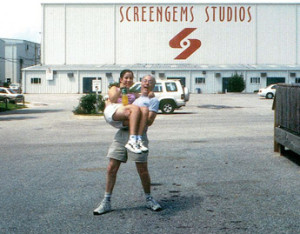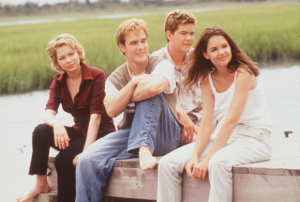
In the Season One finale of Mad Men, back when the agency was just Sterling Cooper, Don Draper made an advertising pitch to Kodak for the new slide projector carousel (ironically something that my dad still owns and rarely uses). His pitch (which you can see in this video) drew on the premise of creating a nostalgic bond between a consumer and a product.
Ironically, isn’t this what we feel when a TV show like Mad Men ends? When we grow attached to a TV family or group of people, it’s hard to say goodbye. It’s the reason why some TV shows end up lasting way longer than they should. The end often draws more on nostalgia than anything else—just watch the AMC campaign for the second half of the final season of Mad Men: and you’ll know what I mean.
Like a piece of music taking you back to a specific space and time, we sometimes have the same bond with TV. Dawson’s Creek was a show I watched with my dad every week. It was a big deal on weeks when we wouldn’t watch together because we were in a small tiff. For my thirteenth birthday he took me to Wilmington, North Carolina, where they filmed the show (and where he also conveniently had a client he could visit). We even got to go to set on location and meet Joshua Jackson, one of the leads. This is a moment that will live only in memory due to a broken light meter on my dad’s camera that ruined the literally very dark moment. I’m sure he still feels bad about this.
 We really do get caught up in the lives of TV characters, don’t we? I remember having to call my best friend at the end of Dawson’s Creek to make sure I wasn’t imagining that Joey chose Pacey. I remember when same-sex sexual content wasn’t as common on network TV and the excited cheers of all the men on my freshmen year dorm floor when Marissa kissed Alex on The OC — a show that they would never be caught dead watching any other night.
We really do get caught up in the lives of TV characters, don’t we? I remember having to call my best friend at the end of Dawson’s Creek to make sure I wasn’t imagining that Joey chose Pacey. I remember when same-sex sexual content wasn’t as common on network TV and the excited cheers of all the men on my freshmen year dorm floor when Marissa kissed Alex on The OC — a show that they would never be caught dead watching any other night.
As sad as we might be when something ends, we always find a way of moving on. We find something new and different, maybe not better, to watch and we grow attached to new characters and new families. We can even re-watch the things we love on DVD or streaming services. The thing we learn as we move past a TV show or movie or any piece of art we grow attached to, is that they represent a time in our lives or a time in history. We look back at them with fondness or nostalgia for a time we once cherished.
As Don said in his pitch to Kodak: “My first job I was in-house at a fur company, with this old pro of a copywriter, a Greek, named Teddy. Teddy told me the most important idea in advertising is ‘new.’ It creates an itch. You simply put your product in there as a kind of Calamine lotion. He also talked about a deeper bond with a product: nostalgia. It’s delicate, but potent. Teddy told me that in Greek, nostalgia literally means the pain from an old wound. It’s a twinge in your heart, far more powerful than memory alone.”


